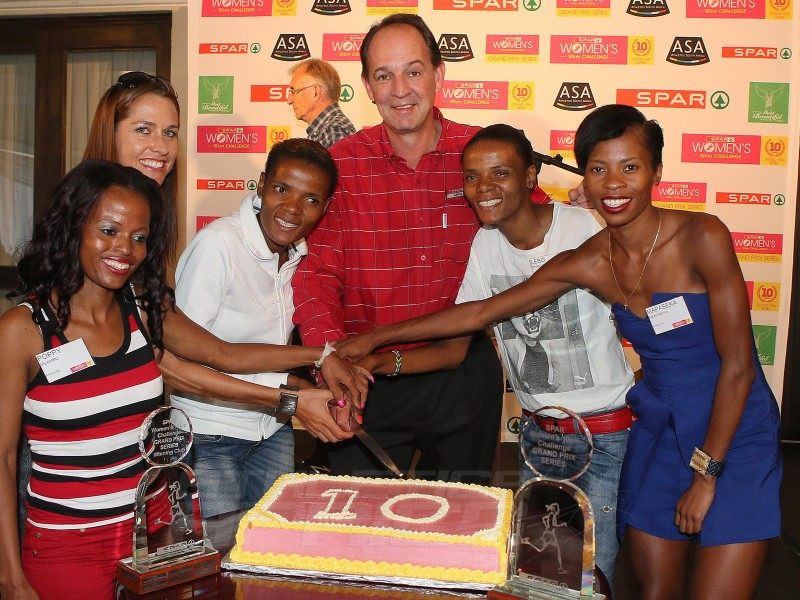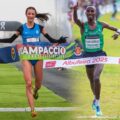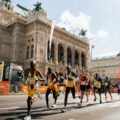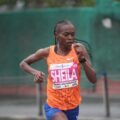The most sought-after title in women’s road running, the SPAR Grand Prix, is 10 years old this year, and is celebrating by looking to the future.
As part of its 10th anniversary celebrations, SPAR has announced that each of the runners who have won the Grand Prix title will take a promising junior runner under her wing.
This mentorship programme will include the junior runners travelling to all five races with their mentors, and having access to advice about training, strategy and various aspects of competition.
The SPAR Women’s 10km Challenge series is by far the biggest in South Africa, with more than 100 000 women competing in the five races held around the country.
Many of South Africa’s elite athletes have launched their careers in the SPAR Challenge, with runners like Rene Kalmer and Irvette van Zyl stamping their mark while still running as juniors.
In an environment where women’s sporting achievements are largely under-reported, the Challenge has been an opportunity for the top runners to receive the recognition they richly deserve.
The Grand Prix was launched in 2007 to consolidate the five SPAR Women’s 10km Challenge races into a single series for elite athletes.
It has proved highly successful, with South Africa’s top runners vying for the top spot and raising the profile of each of the five races, which are held in Cape Town, Port Elizabeth, Durban, Pretoria and Johannesburg.
Mentorship programme
Five of the six runners who have won the Grand Prix have either qualified, or are in the process of qualifying, for the Olympic Games in Rio de Janeiro later this year, and Kalmer and Van Zyl both took part in the London Olympics in 2012.
Rene Kalmer has won the Grand Prix title three times and Irvette van Zyl has won it twice. Poppy Mlambo won the inaugural title.
The ebullient Mapaseka Makhanya won in 2014, and the road running twins, Diana-Lebo and Lebogang Phalula took the title in 2015 and 2016 respectively.
Kalmer said she was very excited about the mentorship programme.
“I think it’s awesome that we are going to mentor some of the junior runners,” she said.
“I feel privileged to be able to give something back.”
She said the junior runners would find that running was not always plain sailing, but their mentors would be there to help them through the bad patches.
“The juniors will travel to the SPAR races with us, so we will be able to advise them and to help them with training programmes and race tactics. I think we will be like a helpline for the juniors. It is all part of building for the future,” said Kalmer.

L-R; Poppy Mlambo (Athlete), Rene Kalmer (Athlete), Lebogang Phalula (Athlete), Mike Prentice (SPAR Group Marketing and/Merchandising Executive), Lebo-Diana Phalula (Athlete) and Mapaseka Makhanya (Athlete) cut the 10th Year Cake at the SPAR GRAND PRIX LAUNCH held at the Wanderers Sport Club on Wed 16 March 2016 / Photo credit: Reg Caldecott
Ian Laxton, founder and coordinator of the Grand Prix, said the SPAR series had been a beacon of light for woman runners of all ages.
“At the elite end every single athlete considers these races to be the equivalent of national championships,” said Laxton.
“ Spar has assisted numerous runners establish and consolidate their careers in an environment where there is little opportunity other than trying to get into races overseas or moving up to ultra distances. The 10km distance is perfect because it caters for both established world-class runners as well as youngsters trying to make their mark.
“Moving into its second decade, the Spar Grand Prix is again opening the door for elite runners to earn big prize money, attract sponsors, run world class times, compete with international athletes coming into South Africa and offering them a unique opportunity to compete in world-class events without men.
“And now the addition of the junior-mentorship element will assist South African running to have a new generation of world class runners to follow in the footsteps of the likes of Rene, Elana Meyer and the Phalulas,” said Laxton.
SPAR Marketing Director Mike Prentice welcomed the mentorship programme.
“The SPAR Challenge races and the Grand Prix are among our most important sponsorships,” said Prentice.
“The Grand Prix has been going for 10 years now, and it has gone from strength to strength. With this programme, we will ensure that the current high standards will be maintained in the future, and our Grand Prix winners will be part of an exciting development programme.”
The prize money for the Grand Prix has been increased, with the winner taking home R160 000. The runner-up will receive R53 000 and the third-placed athlete R32 000. There are cash prizes for the top 15 athletes.
There are also cash prizes for the top runners in the junior, veteran, master and grand master categories. Prize money for 2016 amounts to a whopping R405 000.
In another innovation, the winner of each race will be paid a bonus of R10 000, in addition to the race prize money.
The first race of the 2016 series takes place from the Green Point Stadium in Cape Town on April 17.








